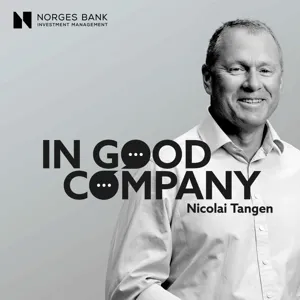Podcast Summary
The Burden of Perfectionism: Perfectionism, rooted in feelings of inadequacy, exhausts and doesn't enhance results. It's an attempt to mask imperfections through excessive standards and a desire for a flawless image, inherited from parents and influenced by culture.
Perfectionism, which begins with a feeling of lack or deficiency, is not only exhausting but also doesn't lead to better results. Perfectionism is an attempt to conceal and hide imperfections through excessive standards and a need to project a perfect image. It can be inherited from parents, but environmental factors also play a role. Perfectionism is split into self-oriented perfectionism, which is the individual's burning need to be perfect and self-critical tendencies when standards aren't met, and other-oriented perfectionism, which is imposing perfectionistic standards on others. Cultural differences also influence perfectionism, with some countries having higher self-aware imperfections than others. Overall, it's important to recognize that perfectionism can be harmful and limit opportunities for growth and improvement.
Impact of Perfectionism on Relationships and Work Environments: Perfectionism, whether self-oriented or other-oriented, can lead to inner pressures, clashes, tension, dissatisfaction, fear, micromanagement, and even job turnover.
Perfectionism, whether self-oriented or other-oriented, can significantly impact relationships and work environments. Self-oriented perfectionism, rooted in individualistic cultures, can lead to inner pressures and clashes in interpersonal relationships. On the other hand, other-oriented perfectionism, where one expects others to meet high standards, can create tension and dissatisfaction. This form of perfectionism, often seen in authority figures, can drive high standards but also fosters fear and micromanagement. In fact, statistics suggest that 70% of people leave their jobs due to their immediate bosses, potentially due to micromanagement and unrelenting expectations. Overall, while perfectionism can lead to achievements and high standards, it's essential to be aware of its potential negative impacts on relationships and mental health.
The culture of fear and constant criticism in workplaces due to socially prescribed perfectionism: Recognize the negative effects of socially prescribed perfectionism and strive for healthier work environments that encourage growth and learning from mistakes to improve performance and relationships.
The pressure to perform perfectly in our work environments can lead to a culture of fear and reluctance to take risks. This is known as socially prescribed perfectionism, where external expectations create a sense of constant surveillance and criticism. This form of perfectionism is linked to serious mental health issues and can be particularly prevalent in today's society, where economic pressures and technological advancements increase competition and the expectation for flawless performances. It's essential to recognize the negative effects of this mindset and strive for healthier work environments that encourage growth and learning from mistakes. This will ultimately lead to higher performance and more harmonious relationships.
The impact of social media on perfectionism and mental health: Social media can create unrealistic standards of perfection, leading to feelings of inadequacy and negative mental health outcomes like depression, anxiety, and eating disorders.
The rise of social media, particularly around the time of the iPhone's release in 2007, has contributed to the increasing pressure on individuals to conform to unrealistic standards of perfection. This hyper-reality created by social media can lead to feelings of inadequacy and intensified perfectionistic tendencies. While social media has its benefits, such as community building and access to information, the comparative and visual nature of these platforms can also negatively impact happiness and mental health. Research suggests a correlation between excessive social media use and psychological problems like depression, anxiety, and eating disorders. The trend of rising perfectionism may be a contributing factor to these observable outcomes in society.
Perfectionism hinders mental health and resilience: Perfectionism can lead to mental health costs, avoiding help, excessive effort, and ultimately, hinders performance, creativity, and innovation. Practice self-compassion and seek help instead.
Perfectionism, while often associated with hard work and success, can actually hinder resilience and mental health. Perfectionists may avoid seeking help or admitting vulnerability, leading them to push through setbacks and stressors rather than addressing them. This can result in significant mental health costs. Furthermore, the perfectionistic paradox suggests that perfectionists may put excessive effort into tasks until they encounter failure, at which point they may withdraw or procrastinate to avoid feelings of shame and anxiety. This pattern is not conducive to performance, creativity, or innovation. In fact, studies show that perfectionists do not perform better in school or the workplace. Instead of striving for perfection, it's essential to practice self-compassion, seek help when needed, and learn to absorb setbacks and stressors.
The Dangers of Perfectionism in the Workplace: While striving for excellence is important, an unhealthy focus on perfection can lead to negative consequences, including anxiety, fear of making mistakes, and a lack of psychological safety. Allowing vulnerability and mistakes can create a more harmonious and creative work environment, but finding the right balance is key.
While striving for perfection may seem beneficial for organizations in terms of productivity and excellence, it can also lead to harmful consequences such as anxiety, fear of making mistakes, and a lack of psychological safety. Perfectionists focus more on avoiding failure than achieving success, and people often trust and like those who admit mistakes rather than those who are perfect. Organizations that allow vulnerability and mistakes can create a more harmonious and creative work environment. However, there is a fine balance between pushing for excellence and allowing for mistakes. Some companies, like McKinsey, may even hire perfectionistic individuals as "insecure overachievers," but it's essential to have psychological safety and prevent the anxiety and pressure from becoming unsustainable for employees.
Balancing Professional Success and Personal Well-Being: To achieve professional success without sacrificing personal life and mental health, acknowledge tendencies towards burnout, embrace imperfection, and create a work culture that values both productivity and well-being.
Achieving professional success comes with a cost to mental health and personal life. To mitigate this, it's crucial to strike a balance between high performance and sustainability. This means acknowledging and managing tendencies that can lead to burnout, such as perfectionism and the fear of failure. Embracing imperfection and experimentation can help reduce pressure and foster innovation. Organizations are also adapting to create cultures that encourage risk-taking and work-life balance, such as paying for failure or implementing shorter work weeks. The goal is to foster an environment that values both productivity and personal well-being.
Striving for perfection can hinder success: Focusing on 'good enough' work allows for completion and progress, while perfectionism can lead to overthinking, procrastination, and delays.
Aiming for perfection in projects can be costly, time-consuming, and counterproductive. Instead, focusing on producing work that meets the required criteria and provides value is essential. The concept of "good enough" is crucial in organizations, allowing for the completion and moving on to the next project. Perfectionism can hinder success, leading to overthinking, procrastination, and delays. Contrarily, CEOs may not necessarily need to be perfectionists. Instead, they should set the direction, motivate their teams, and trust their employees to exceed expectations with their creativity and innovation.
Valuing People Over Productivity: Effective management involves seeing employees as individuals, understanding their motivations, and creating a supportive environment to foster creativity and growth.
Focusing solely on productivity, profit margins, and perfectionism in the workplace can be detrimental to employees' creativity, ownership of their work, and overall well-being. Instead, effective management involves seeing people as individuals, understanding what motivates and inspires them, and creating a safe and comfortable environment where they can express their ideas and take risks. While hard work and dedication are essential, it's also crucial to recognize that there are times when it's important to quit or move on from a project. Balance is key, and a focus on people and their well-being can lead to better performance and growth for both individuals and organizations.
Finding balance between hard work and smart work: Perfectionism hinders progress, embrace mistakes and setbacks, and face feedback for growth
Finding the right balance between hard work and smart work is crucial for individuals and organizations. Perfectionism can hinder progress, but recognizing that mistakes and setbacks are a natural part of the process is essential. From a personal perspective, it's important for perfectionists to acknowledge that the consequences of imperfection may not be as dire as they fear. Pushing oneself to put work out there and face feedback, even if it's negative, can lead to growth and progress. A good rule of thumb is that even the best work will not please everyone, and criticism is a sign of having taken a brave step towards sharing your creations with the world.
Embracing imperfection and self-compassion: Being courageous, vulnerable, and kind to oneself are crucial for overcoming challenges and achieving goals. Imperfection and setbacks are natural parts of the learning process, and self-compassion and kindness towards oneself are essential in these moments.
Being courageous, vulnerable, and kind to oneself are essential components of overcoming challenges and achieving important goals. However, these qualities are not always easy to practice, especially during setbacks. It's important to remember that imperfection and setbacks are natural parts of the learning and growth process. Self-compassion and kindness towards oneself are crucial in these moments. The areas of perfectionism that require more research include cross-cultural comparisons and its relationship with performance in the workplace. The Japanese aesthetic philosophy of Wabi Sabi, which celebrates the perfect imperfect, can offer a perspective on finding joy and beauty in imperfection and accepting the finite nature of life. Ultimately, embracing vulnerability, practicing self-compassion, and acknowledging the imperfect nature of life can help us navigate difficult moments with grace and resilience.






